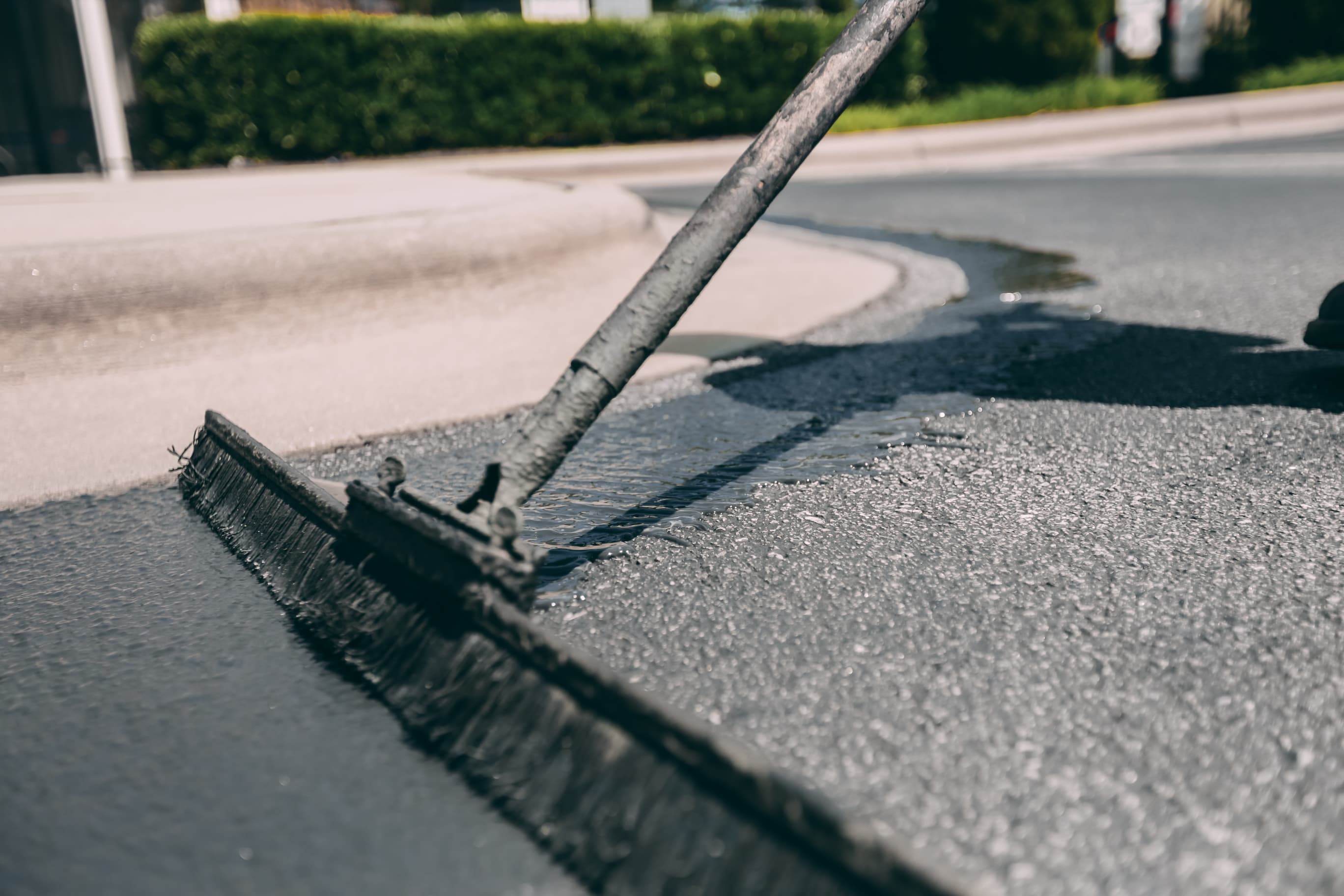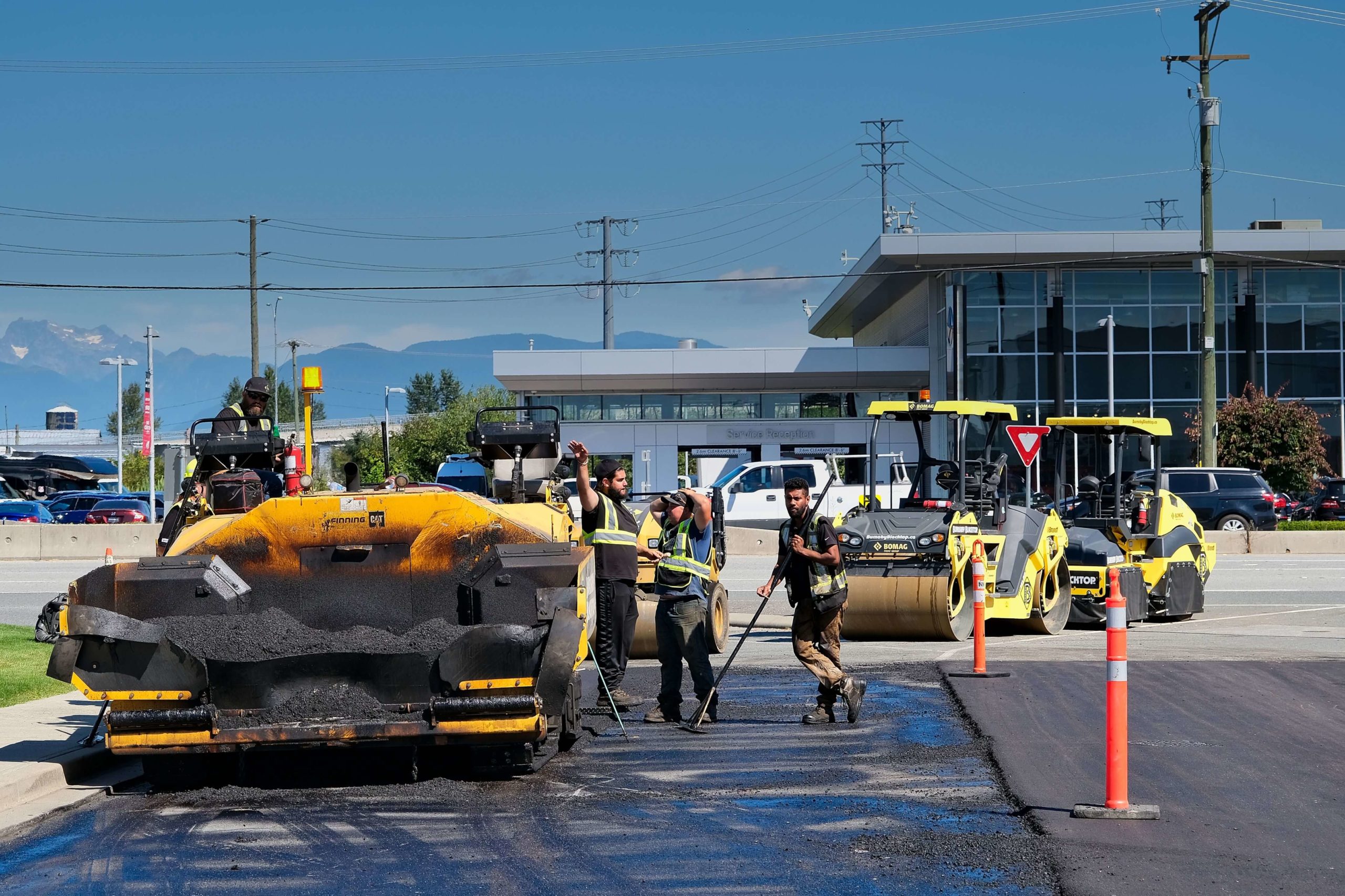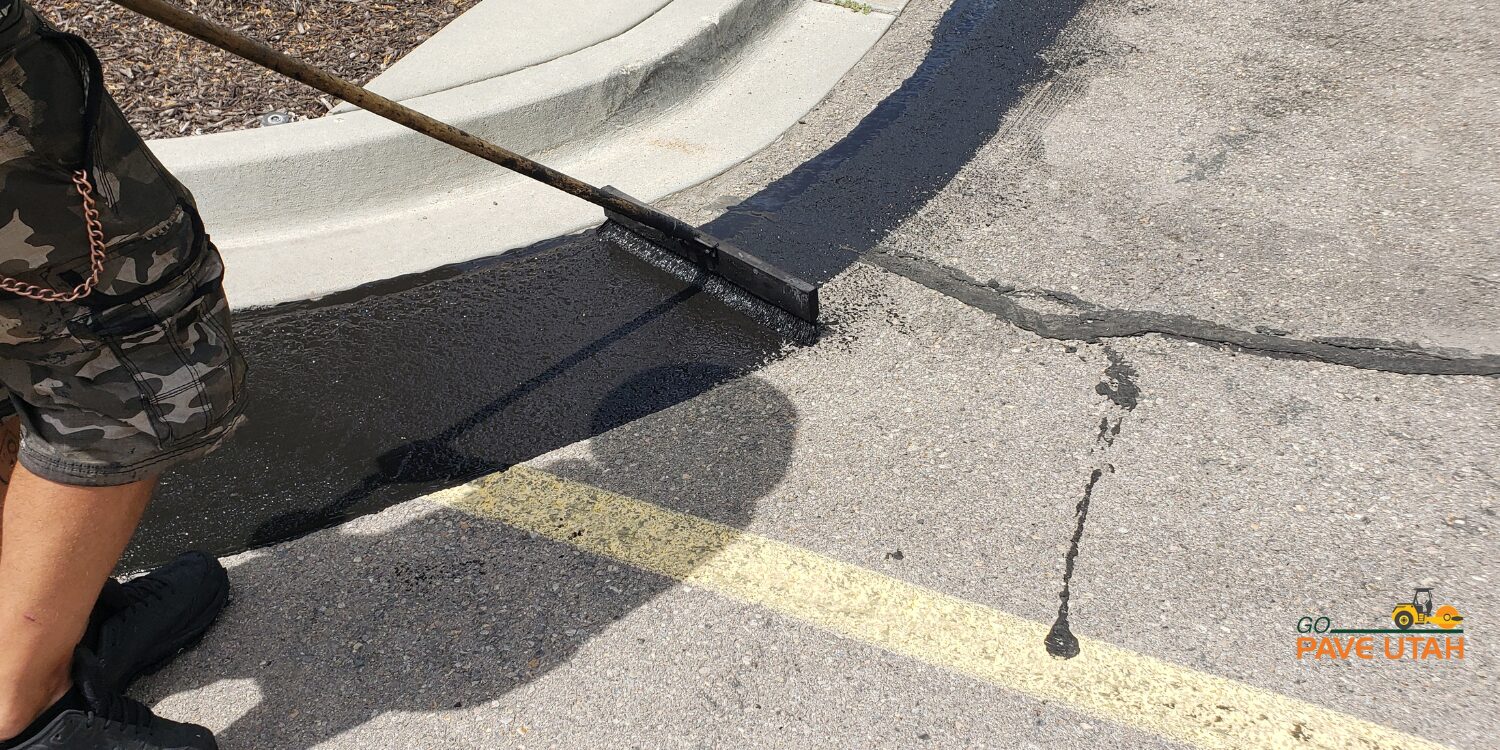Transform Your Home's Appearances: Commercial Parking Lot Leading and Asphalt Sealing Solutions
Wiki Article
Warm Mix Asphalt: A Lasting Remedy for Sidewalk
Hot Mix Asphalt (HMA) has actually emerged as a leading lasting option for sidewalk options, supplying a myriad of cutting-edge innovations and environmental advantages. As the demand for green building techniques grows, checking out the nuances of HMA's sustainability can supply valuable insights right into the future of pavement options.Ecological Benefits of Warm Mix Asphalt

Moreover, Warm Mix Asphalt helps to alleviate urban warm island effects. Its dark color soaks up sunlight, minimizing the quantity of heat showed back right into the ambience contrasted to lighter-colored pavements. This can reduce ambient temperature levels in city locations, reducing the need for air conditioning and eventually lowering energy usage.
On top of that, Warm Mix Asphalt adds to improved stormwater management. Its porous nature enables water to recharge and penetrate the pavement groundwater materials, minimizing drainage and the threat of flooding. These ecological benefits make Warm Mix Asphalt a lasting choice for leading roadways and freeways.
Power Performance in HMA Manufacturing
Is energy efficiency a crucial factor in the manufacturing of Hot Mix Asphalt (HMA)? Energy plays a substantial function in the production of HMA, influencing both expense and ecological sustainability. One key facet of energy performance in HMA production is the usage of cozy mix asphalt (WMA) technologies.In addition, developments in plant technologies have actually led to even more energy-efficient HMA manufacturing procedures. By optimizing power use in HMA manufacturing, the market can lower its carbon footprint while maintaining high-grade pavement products.
Recyclability of Hot Mix Asphalt
The recyclability of Hot Mix Asphalt (HMA) is a critical element of its sustainability and lasting ecological impact. HMA is among one of the most recycled materials in the United States, with over 100 million lots of redeemed asphalt sidewalk (RAP) being reused every year in brand-new sidewalk building and construction. Reusing HMA offers a number of environmental advantages, such as reducing the need for virgin materials, reducing energy consumption during manufacturing, and decreasing the amount of waste sent to land fills.The procedure of recycling HMA involves crushing the existing sidewalk, crushing it right into smaller pieces, and blending it with new aggregate and asphalt binder to develop a recycled mix. Generally, the recyclability of HMA plays a considerable role in advertising sustainable techniques within the sidewalk industry.

Long-Term Performance of HMA
Asphalt sidewalks show sturdiness and durability over an extensive period, mirroring the long-term performance of Hot Mix Asphalt (HMA) Furthermore, innovations in HMA technology, such as the use of polymer-modified binders and cozy mix asphalt, have even more boosted the durability and durability of HMA sidewalks. By prioritizing top quality construction and maintenance techniques, HMA proceeds to show itself as a sustainable hot mix asphalt and cost-effective option for long-lasting sidewalk framework.
HMA: Longevity and Sustainability
Showing both resilience and sustainability, Warm Mix Asphalt (HMA) has actually come to be a foundation in the building and construction of lasting sidewalk infrastructures - regrading. HMA's resilience originates from its ability to withstand hefty loads, rough weather, and high traffic volumes, making it a trustworthy choice for roads, freeways, and airport paths. The make-up of HMA, which usually consists of aggregates, binder, and filler, plays a crucial role in improving its longevity and resistance to use and tear
Furthermore, HMA's sustainability hinges on its recyclability and energy-efficient manufacturing procedure. The ability to reuse recovered asphalt pavement (RAP) in new HMA mixes minimizes the demand for virgin products and minimizes the environmental effect of sidewalk building and construction and upkeep. Additionally, the energy effectiveness of creating HMA depends on its reduced blending temperatures contrasted to various other sidewalk products, bring about decreased energy consumption and greenhouse gas emissions.
Conclusion
In final thought, hot mix asphalt (HMA) provides a sustainable solution for pavement with its eco-friendly characteristics. HMA's recyclability, energy efficiency in manufacturing, and long-term sturdiness make it an environment-friendly choice for road construction. By conserving natural sources, minimizing waste, and reducing greenhouse gas exhausts, HMA plays an important function in promoting sustainability in framework development. Its ability to alleviate metropolitan warm island impacts additionally highlights its value in producing environmentally conscious and durable pavement systems.
HMA is one of the most recycled products in the United States, with over 100 million bunches of recovered asphalt sidewalk (RAP) being reused annually in brand-new sidewalk building.The procedure of recycling HMA involves grating the existing pavement, crushing it right into smaller items, and mixing it with brand-new aggregate and asphalt binder to develop a recycled mix.Asphalt pavements show longevity and durability over a prolonged duration, reflecting the lasting performance of Warm Mix Asphalt (HMA) Additionally, advancements in HMA technology, such as the use of polymer-modified binders and cozy mix asphalt, have further boosted the sturdiness and durability of HMA pavements. The ability to reuse redeemed asphalt pavement (RAP) in new HMA combinations decreases the demand for virgin materials and reduces the ecological influence of pavement building and upkeep.
Report this wiki page